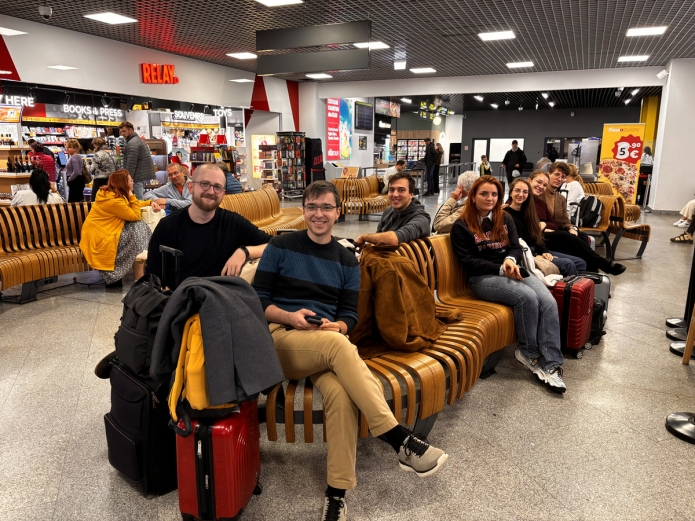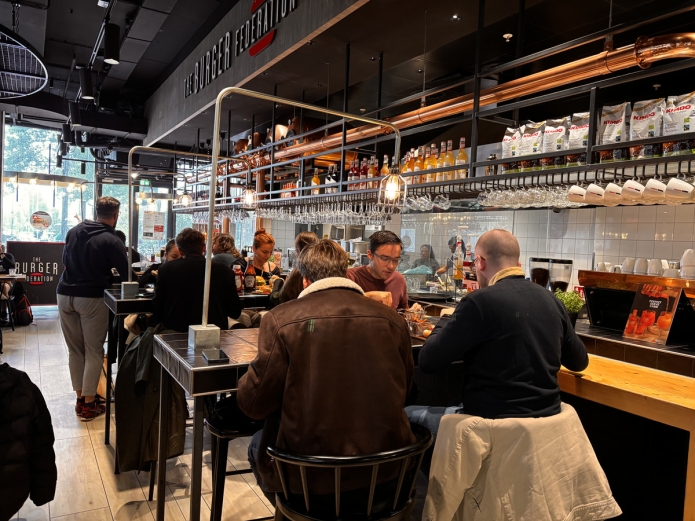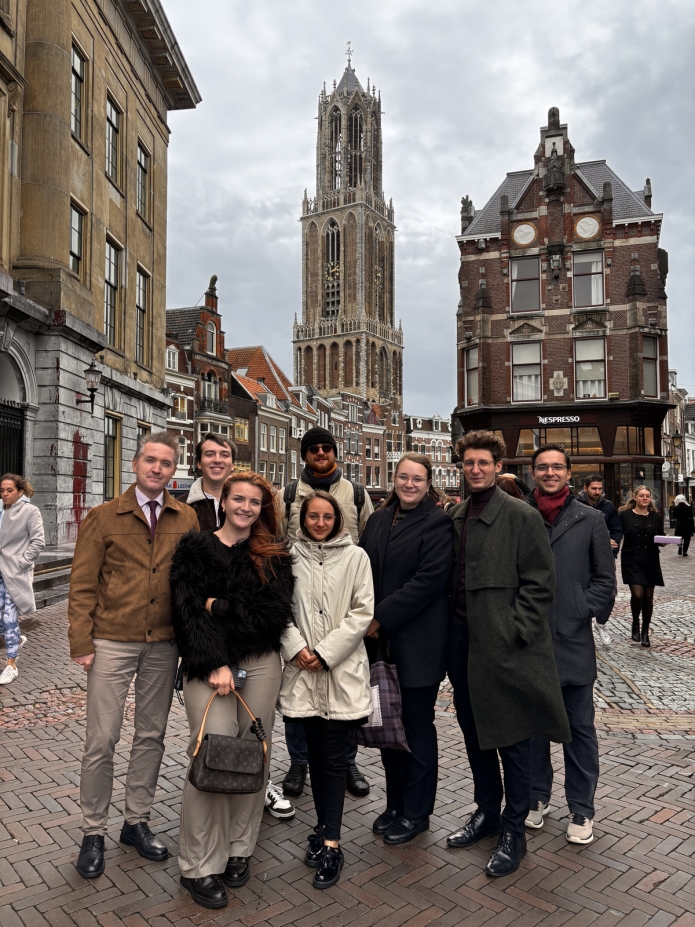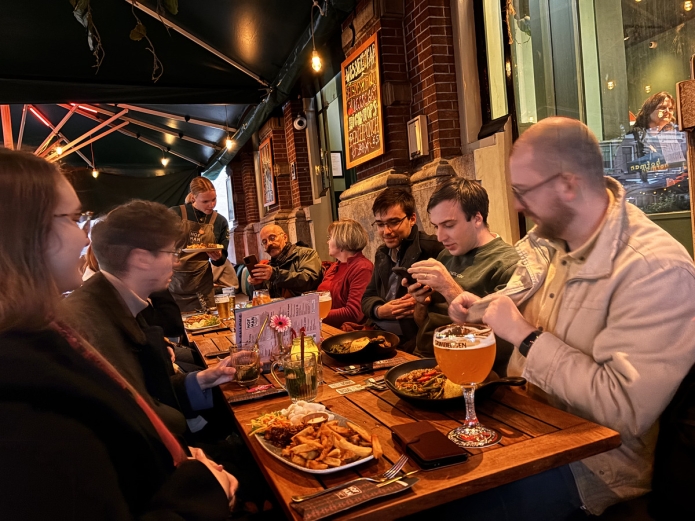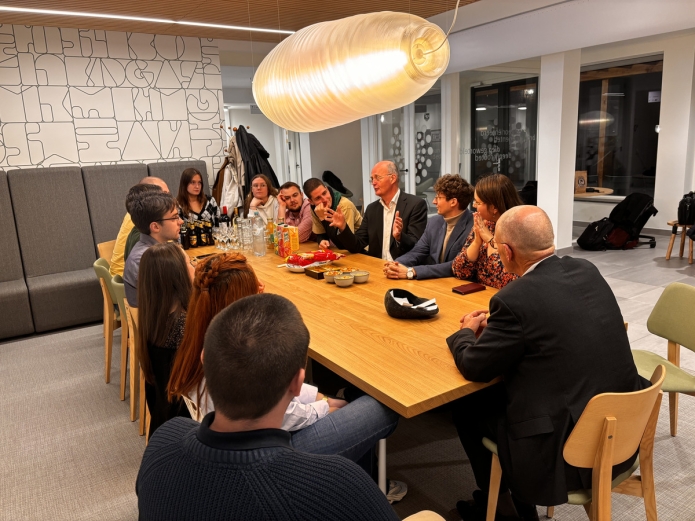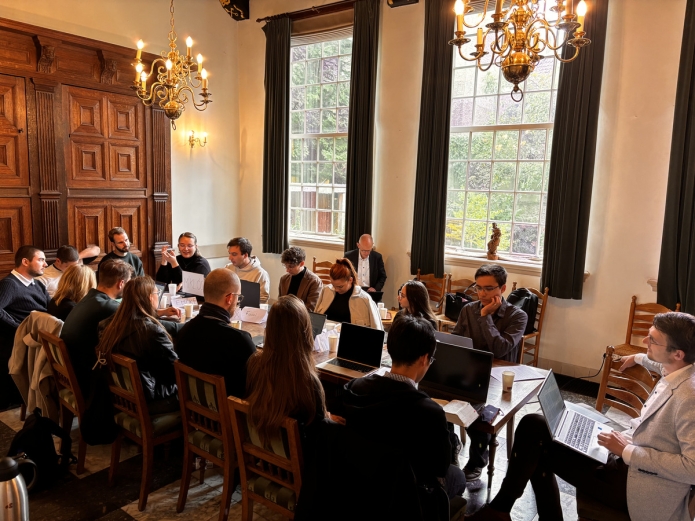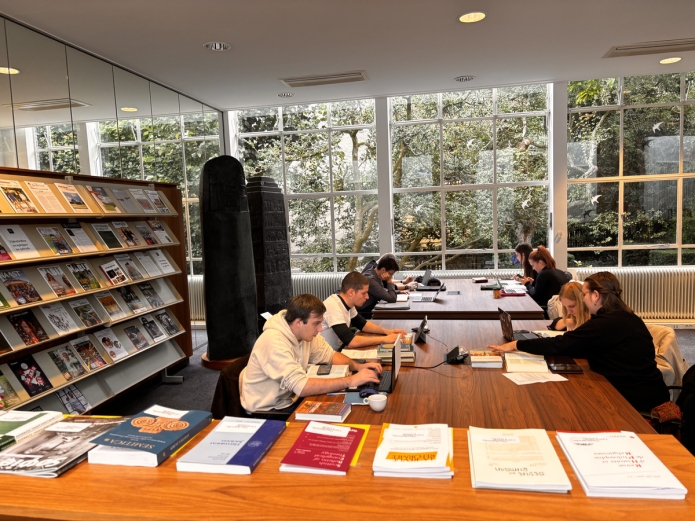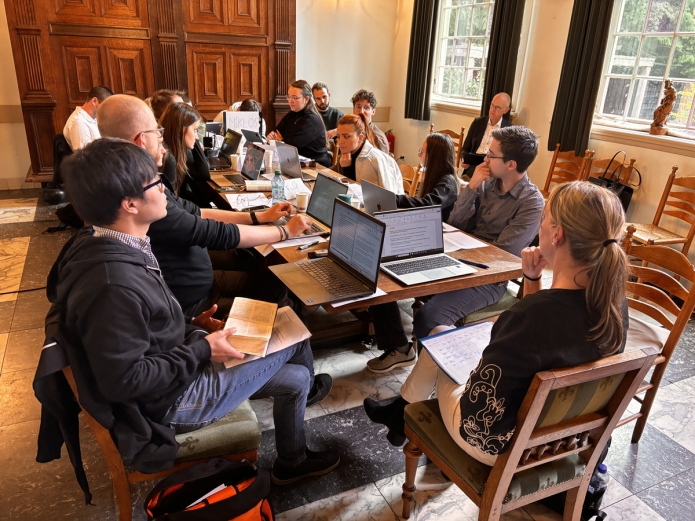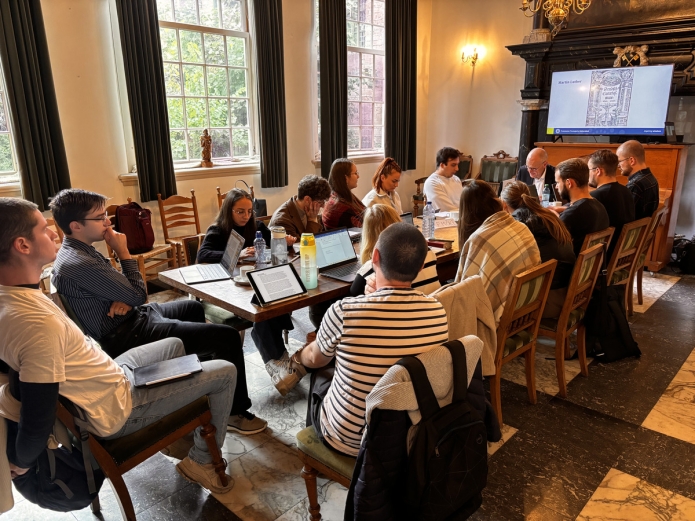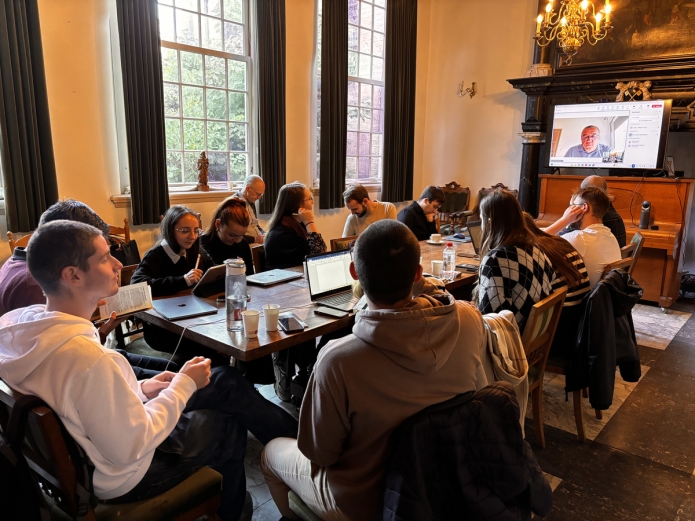Within the framework of a blended mobility program supported by Erasmus+, PTI students participated in an international course, a so-called BIP mobility, between October 4-11.
PTI students participated in an international Erasmus BIP course in Utrecht, Netherlands
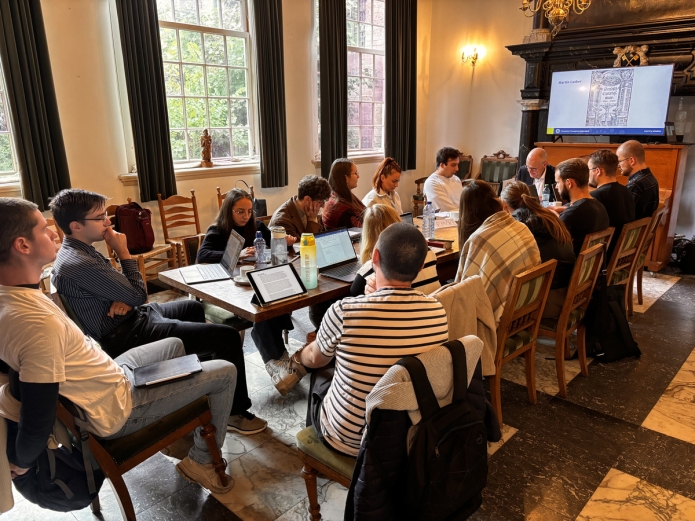
Within the framework of a blended mobility program supported by Erasmus+, PTI students participated in an international course, a so-called BIP mobility, between October 4-11. The program was realized as a joint project of two Dutch universities, the Protestant Theological University and the Utrecht University of Theology, and two Hungarian universities, the Debrecen Reformed Theological University and the Protestant Theological Institute of Cluj-Napoca, with the participation of their faculty and students.
This year's program was primarily organized by the Protestant Theological University, and the location for the study week was the university city of Utrecht. This year's program was formally a continuation of a similar event organized last year by the Debrecen Reformed Theological University, but it chose a different thematic direction.
The theme of this year's course was "The Kingdom of God," and its motto was formed by the Lord's Prayer: "Thy kingdom come". What does the Kingdom of God refer to? Should we think of it as a territory or space, as the Hungarian word "ország" suggests, or is it rather about God's reign, His rule? Is this kingdom present or future?
During the study week, participating students sought answers to questions similar to those above through interdisciplinary study, from Old Testament, New Testament, Reformation-era theological, and contemporary missiological perspectives. The Kingdom of God theme was coherent enough to form the core program of an in-depth study week, multifaceted enough to be examined from multiple angles, and exciting enough to encourage methodologically different types of exploration.
Each day of the study week was organized around a specific discipline and offered methodologically diverse opportunities for processing the topic. Monday focused on the Old Testament, coordinated by Csaba Balogh, a faculty member of PTI. Tuesday was devoted to the New Testament, with the program led by two professors from Utrecht University of Theology, Arco den Heijer and Myriam Klinker. Wednesday interpreted texts from the Reformation era under the leadership of Wim Moehn, a faculty member of the Protestant Theological University. Thursday and Friday, led by László Gonda, a professor at Debrecen Reformed Theological University, explored the missiological relevance of the Kingdom of God.
In addition to lectures, students had the opportunity to delve deeper into the study of the topic using various methods, to read and interpret texts by Erasmus, Luther, or Calvin together, to search for keys to certain texts in the related interpretations of commentary literature in the university library reading room, or to share their interpretations and questions about a given text with each other through group discussions.
Each day of the study week began with a morning devotional, which was provided by students from the participating institutions, and concluded with a brief scripture reading and singing. Thus, the study week was not only an occasion for learning but also for spiritual edification and deepening through biblical texts related to the theme.
The common language of the program was English, which the students generally managed well. A particular point of interest was that the main location for study was a room in one of Utrecht's ancient churches, the Pieterskerk (St. Peter's Church), built in 1048. The event took place in a location where the keys opening and closing "the kingdom of heaven" (Mt 16:19) were present throughout among the decorative elements, marking the church's former patron apostle Peter.
The joint Erasmus program was not only about learning but also about discovering the rich cultural context. The non-Dutch students present at the course were mostly visiting the Netherlands for the first time, so the study week had special significance in terms of getting to know the Netherlands, Dutch society and Dutch Christianity. The Transylvanian students attended a Sunday worship service at the Jacobikerk in Utrecht, where they gained insight into local preaching practices, congregational customs and communion practices. But the program also included discovering the city's landmarks and visiting a local Christian museum. Shared meals and informal meetings with representatives of the local Utrecht student organization (Voetius) further enriched the participants' cultural experiences.
PTI looks back on the past study week with joy and gratitude, thanking the Protestant Theological University, and especially professors Klaas-Willem de Jong and Wim Moehn for their organizational work, as well as Albert Nijboer for his assistance with Erasmus organization.
